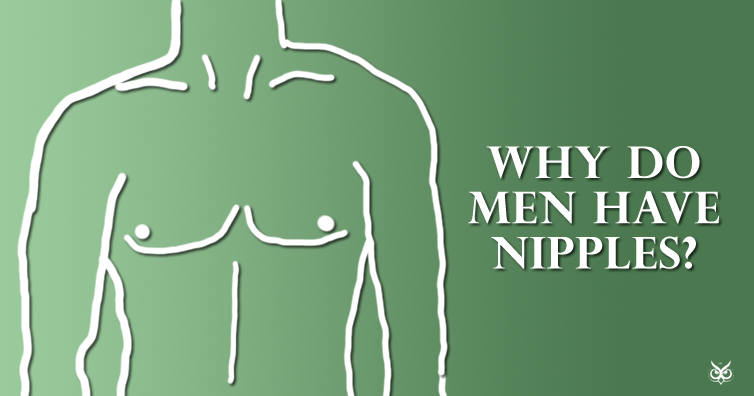Vestigiality taught us that organs or behaviors that have lost their original function have or will eventually disappear. Charles Darwin pointed to these vestiges as evidence for evolution.
So, if people are not meant to carry unnecessary parts, why do men have nipples when they can’t nurse babies?
Well, according to scientists, it all has to do with how humans develop in the womb. Here’s how it goes. (the article continues after the ad)
Three or four weeks after conception, all human embryos follow the same blueprint and develop parallel mammary ridges called ‘milk lines’. They extend from the top of the chest to the lower abdomen. It’s not until week seven or so that genes in the embryo’s sex chromosomes – y’know, usually XX or XY – kick in. They’re what cause the formation of sexual dimorphisms: The physical traits that distinguish biological males from biological females.
But those genes don’t tinker with the already-developing milk lines. The milk lines recede naturally as the fetus grows, leaving behind nipples to both male and female.
But why do men keep this vestigial structure?
According to Ian Tattersall, a paleoanthropologist at the American Museum of Natural History in NYC, “there’s no real metabolic cost to having nipples”. Furthermore, Tattersall explains that’s it’s not an evolutionary priority to lose them: “The fact is that we carry a lot of evolutionary baggage around with us. Natural selection is not hovering there all of the time to get rid of things we absolutely don’t need.”
If you like what you read, then you will definitely love this one: Why Do Zebras Have Stripes? New Research Sheds Light On What Has Puzzled Scientists For Decades
Photo: Screenshot from BrainStuff – HowStuffWorks’ YouTube channel
Photoshop: I’m A Useless Info Junkie
Sources: Why Do Men Have Nipples? | Why Do Men Have Nipples?



